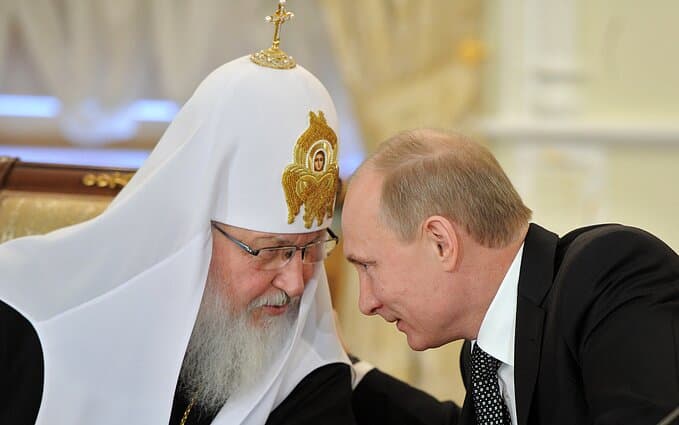ROME – In his 1868-69 novel The Idiot, the great Russian writer Fyodor Dostoevsky wanted to depict what he would later call a “positively good and beautiful man,” a model of true Christian love, which came in the form of the novel’s central character, Prince Lev Nikolayevich Myshkin.
Towards the end of the story, Myshkin is in conversation with friends when talk turns to an acquaintance who converted to the Catholic Church under the influence of a Jesuit. Here’s the prince’s angry response:
“Roman Catholicism is even worse than atheism itself, that’s my opinion! Atheism only preaches a zero, but Catholicism goes further: It preaches a distorted Christ, a Christ it has slandered and blasphemed, a counter Christ! It preaches the Antichrist, I swear to you, I assure you! … To the sword they added lies, trickery, deceit, fanaticism, superstition, villainy; they played upon the most holy, truthful, simple-hearted, ardent feelings of the people; they traded everything, everything, for money, for base earthly power.”
Granted, the passage is just dialogue from a novel, but it sums up what a broad swath of the clergy and intelligentsia of the Russian Orthodox Church, and therefore much of the elite class of Russia itself, have thought about Catholicism for centuries.
The passage comes to mind in light of the latest tit-for-tat between the Vatican and Moscow over the war in Ukraine, in this case over the most recent offer by Pope Francis’s top diplomat, Italian Cardinal Pietro Parolin, for the Vatican to mediate the conflict.
Speaking at the presentation of a new biography of a famed Italian politician named Giorgio La Pira on Monday, Parolin reiterated the Vatican’s desire to play the role of go-between.
“We’re available, I believe the Vatican is well-suited terrain,” Parolin said. “We’ve tried to offer possibilities of encounter with everyone, and to maintain an equilibrium. We’re offering a space in which the parties can meet and start a dialogue. It’s up to them to determine the working method and content.”
Barely had Parolin’s words been reported by Italian news agencies before the Russian government offered a sharp nyet. Maria Zakharova, spokesperson for the Russian Foreign Ministry, said tersely the Vatican would not be the proper place for negotiations.
In part, that cold shoulder reflects a recent flap over comments by Pope Francis in a recent interview regarding the brutality of ethnic minorities allied with the Russians such as the Chechens and Buryats, especially since Zakharova was the first Russian official, of what turned out to be many, to condemn the pontiff’s remarks.
“I’m afraid our Chechen and Buryat brothers, not to mention me, wouldn’t appreciate it,” Zakharova said Monday of Parolin’s offer in a Telegram comment. “From what I remember, there haven’t been any words of apology from the Vatican.”
The truth, however, is that Russia’s distrust of the Vatican has much deeper roots, as the Dostoyevsky quote above illustrates.
It’s an article of faith among many Russian Orthodox intellectuals that Rome is destined to be Moscow’s primary antagonist in terms of representing true Christianity – that the rivalry is genetic and eternal, and that Rome’s perfidy is inevitable.
Many Russian Orthodox thinkers see Rome’s attempts to subvert their church unfolding in at least four clear historical stages:
- The creation of the so-called “Uniate” churches, a pejorative term used to refer to the Eastern churches in communion with Rome, during the 15th and 16th centuries, which many Russian Orthodox to this day see as a Trojan horse designed to poach Orthodox faithful.
- The “Eastern Question” in the 19th century, when the Vatican and Catholic powers sided with Ottoman Turkey against imperial Russian during the Crimean War, resulting in a humiliating defeat for Russia and setting the dominoes in motion that eventually led to the violent overthrow of the Czar.
- The Bolshevik Revolution, when some leading Catholic clergy initially believed that the separation of church and state decreed by the revolutionaries would level the playing field and open up space for Catholic missionary activity.
- The modern ecumenical movement, which some traditional and conservative Russian Orthodox thinkers regard as an effort to subject their church to Roman authority in some sort of modified version of papal primacy.
(A 1988 lecture by Russian Orthodox Deacon Herman Ivanov-Treenadzaty delivered in Australia lays all this out in abundant detail.)
If that’s your worldview, no amount of temporary (and, as they would see it, deceptive) papal “equilibrium” is likely to convince you that in the final analysis, the Vatican can be trusted.
None of this is to suggest that Pope Francis and his Vatican team should abandon the effort. Not all Russian Orthodox believers harbor such deep prejudices – indeed, it’s likely a small minority, though one disproportionately represented in Putin’s inner circle. Attitudes can, and do, change over time.
That said, the pontiff and his advisers also shouldn’t be naïve about the depth of Russian skepticism and resistance. Perhaps they also should weigh carefully how far is too far to go in placating such sensitivities – which, in their most hardened form, may be unlikely to change much, no matter what the pope does.













